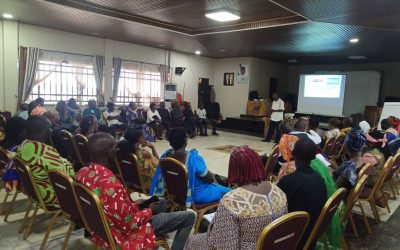In 2004, Sierra Leone reintroduced local councils after a thirty-year hiatus. Section 20 of The Local Government Act states that “local councils shall be the highest political authority in the locality and shall have legislative and executive powers…and shall be responsible, generally for promoting the development of the locality and the welfare of the people in the locality with the resources at its disposal and with such resources and capacity as it can mobilize from the central government and its agencies, national and international organizations and the private sector”.
To ensure that development and democratic credentials are enhanced, the Act provides for participation and transparent administration of local councils. Accordingly, Section 107 of the Act requires local councils to post on a notice board, in a conspicuous place on the premises of the local councils in each ward, monthly statements of financial accounts, development plans and minutes of meetings among others. Section 108 also places an obligation on the Ministry of Local Government to “promote participatory processes in local councils and encourage citizens’ involvement in governance”. Nine years years after the law was promulgated, implementation is still a key challenge.
In January 2013, the Centre for Accountability and Rule of Law (CARL) received a grant from Open Society Initiative West Africa (OSIWA) to undertake a project aimed at monitoring the implementation of Sections 107 and 108 of the Local Government Act in six districts across the country. The project, Local Government Accountability and Citizens Participation in Local Councils, for the most part seeks to improve citizens’ knowledge and participation in governance, particularly at the local level. Some of the strategies include recruiting and training community-based monitors to ensure that there is regular flow of information from the councils to the public, and to monitor that Ward Development Committees are fully constituted.
As part of the project, the Freetown City Council (FCC) and CARL in May organized a joint-training session for at least 25 ward committee members representing 16 wards in the Western Area. The training modules focused on the functions of local councils, role of Ward Development Committees, and the core governance values of accountability, transparency and participation. In addition, the modules covered civic education and volunteerism. As part of the burgeoning partnership between CARL and the FCC, CARL monitored a majority of the elections for the Ward Development Committees to see whether the processes were transparent, fair and competitive. Indeed, FCC provided an enabling environment for all of our monitors to be as involved as necessary. CARL has also partnered with FCC to participate in radio programs and community outreach meetings funded and organized by each other. This partnership with local councils goes beyond Freetown to include Bo, Makeni, Kenema, and Pujehun.
While there are still several challenges relating to participation and open governance, some recent developments are heart-warming. Through the CARL-sponsored consultative conferences with local councils, for instance, CARL was able to know about the concrete steps councils are taking to address some of the perennial challenges relating to participation and transparency. At the Freetown City Council, for example, we have seen documents to the effect that a budget of Le14,375,000 (approximately $3,000) budget has been proposed to erect notice boards in all forty-nine (49) wards in the Freetown City Council. Once it is approved, it is hoped that they’ll be erected in June, 2013. In Kenema, due to increased advocacy efforts by our partner, both the Kenema City Council and Kenema District Council have approached IFAD to support the construction of offices for councillors in each ward. Part of the plan is to have noticeboards in each ward office. Community monitors have started sending reports, mostly via SMS, suggesting that while very few notice boards have been erected, there are now increasing discussions at ward level about the need to engage local council administrators on various matters such as participation, transparency and development.



